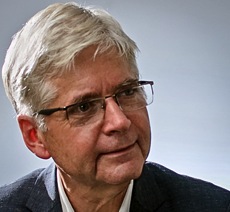The application of the human brain drives us to seek knowledge. It’s a mindset that leads us through an enquiry process something like this…
1. we notice that we’re interested in something (‘hello…what’s that going around in my mind?)
2. we register that enquiring in more depth needs effort on our part. (‘I’ll find out about that’)
3. we may be motivated to investigate further. (‘I’ll do a Google search)
4. we use the new learning acquired by applying it (‘I can use that for this’)
When I use the 4 stage Enquiry process I’m practising Lifetime Learning and there’s always a positive outcome, personally and professionally.

Research into the three main channels for this – doing, hearing, reading – shows that actually doing something is by far the most effective way of learning in terms of gathering and retaining information that we can then reuse (75% compared to 5% from what we hear and 10% from reading).
So the quicker we complete the Enquiry process, the quicker we can start applying what we’ve learnt which, however that turns out, will result in new learning…because we did it. For example, the learning may come when we successfully adapt what we’ve discovered to a specific task.
Lifetime Learning is happening to us whether we know it or not but it seems probable that we get more value from the process if we are aware of it.
At the end of a tough task, management books tell us to review what happened and capture new learning from it for next time. I can see how that could become a helpful habit but do I do it? Well, I feel like those who do either had the Enquiry feature already switched on at birth or they discovered their own version of the 4 stage process very early on and worked at it. For me, the capacity to be able to stand back and consciously review a project and how it could have been better, only happens if I am part of a team and the review process happens naturally in the lift or the MTR.
Left to myself, I’ve rarely had the space in my mind to objectively review a meeting with the intention of accumulating new learning. My mind was usually too full of self-recriminations (why did I…? why didn’t I…?) or self congratulations (I can’t believe I…). My thoughts did have the potential to be developed as learning opportunities but I didn’t get beyond the overwhelming flood of emotions unless I was actually told to make a report.
The fact is that I have only had the incentive to organise my mind and explore opportunities for Lifetime Learning when working I’ve had a job which is fulfilling. Working from home during the Covid Lockdown has also helped (I live with 2 dogs!)
The ability to use our enquiries to analyse, synthesise and evaluate information or new understanding indicates a high level of Critical Thinking and Problem Solving skills that can be applied to other areas. The principles of Action Learning originated with a team of scientists describing their own ignorance, sharing experiences, and communally reflecting on all this to learn. In an early trial, the approach increased productivity by over 30%. People had to be aware of their lack of relevant knowledge and be prepared to explore it with suitable questions and help from colleagues with knowledge and experience in the areas being discussed.
Asking questions and exploring the answers forms a large part of the Executive Coaching experience. 592

 After working in sales and then purchasing roles for almost 18 years with companies in the UK, Japan, Korea and then here in Hong Kong, I became involved in the field of business skills development. 20 years later, my special interests in this area are individual management style building, interpersonal communication and influencing strategies.
After working in sales and then purchasing roles for almost 18 years with companies in the UK, Japan, Korea and then here in Hong Kong, I became involved in the field of business skills development. 20 years later, my special interests in this area are individual management style building, interpersonal communication and influencing strategies. 